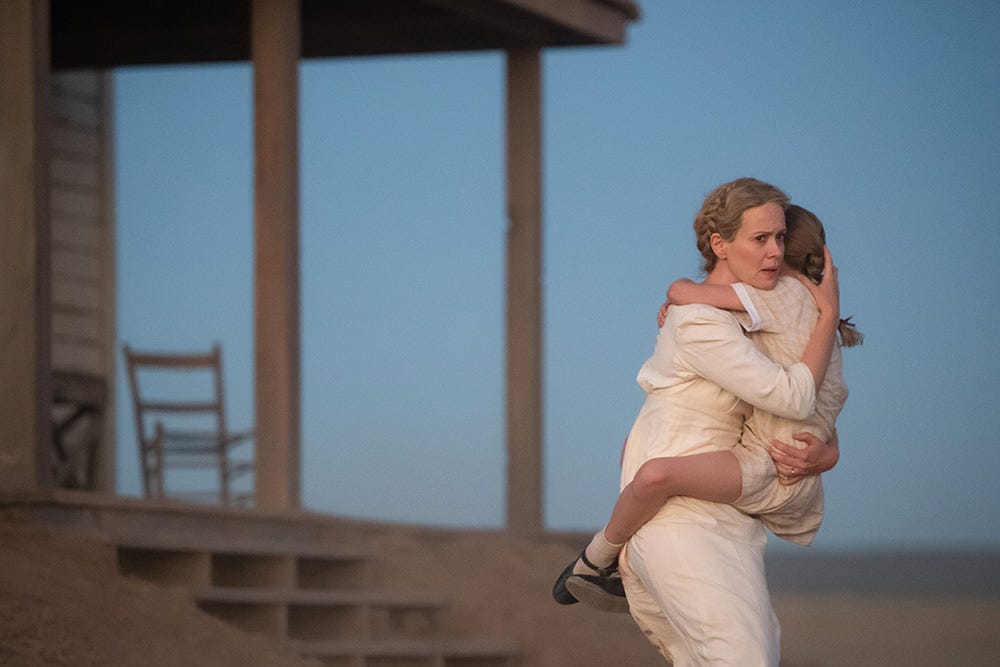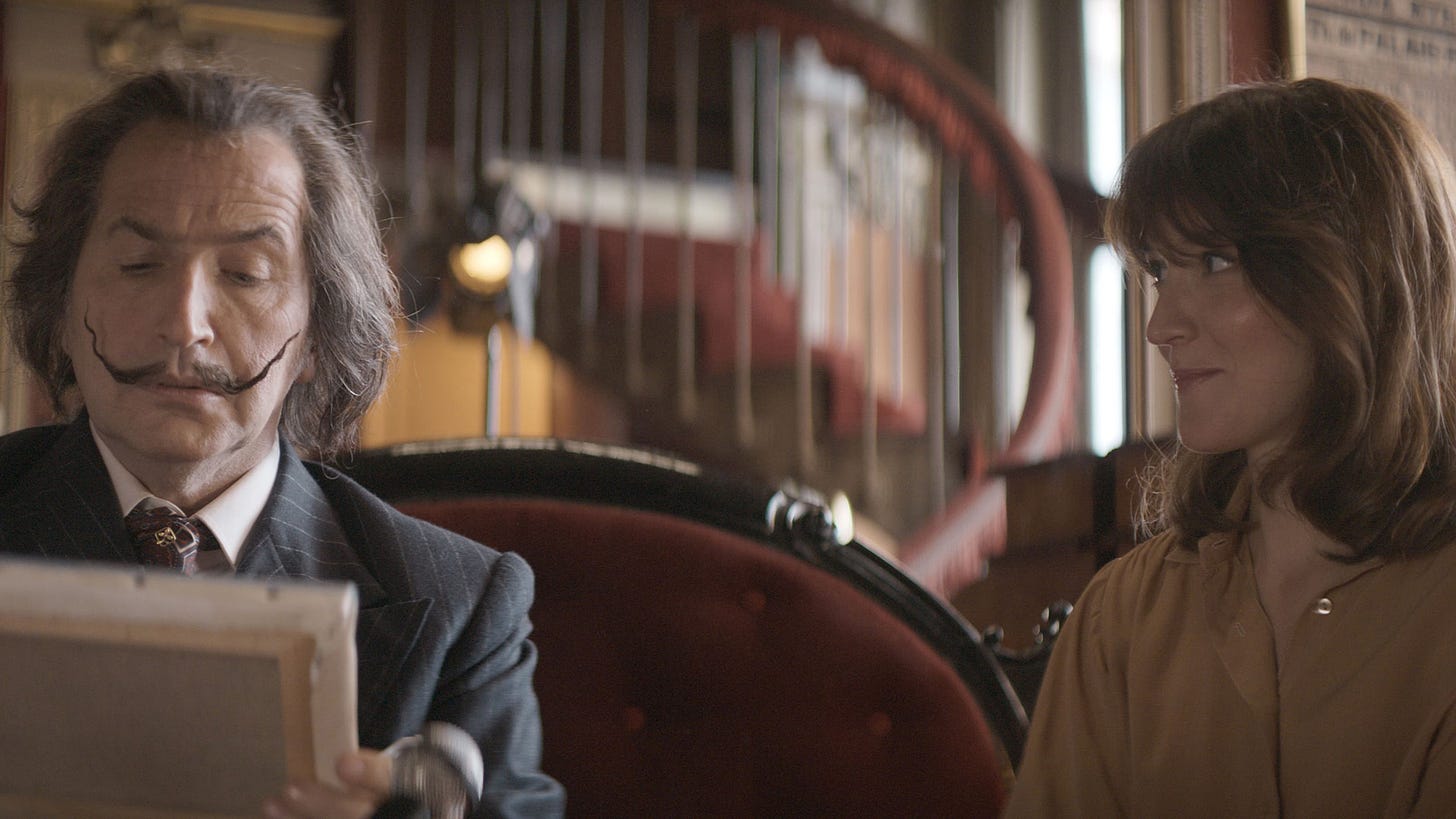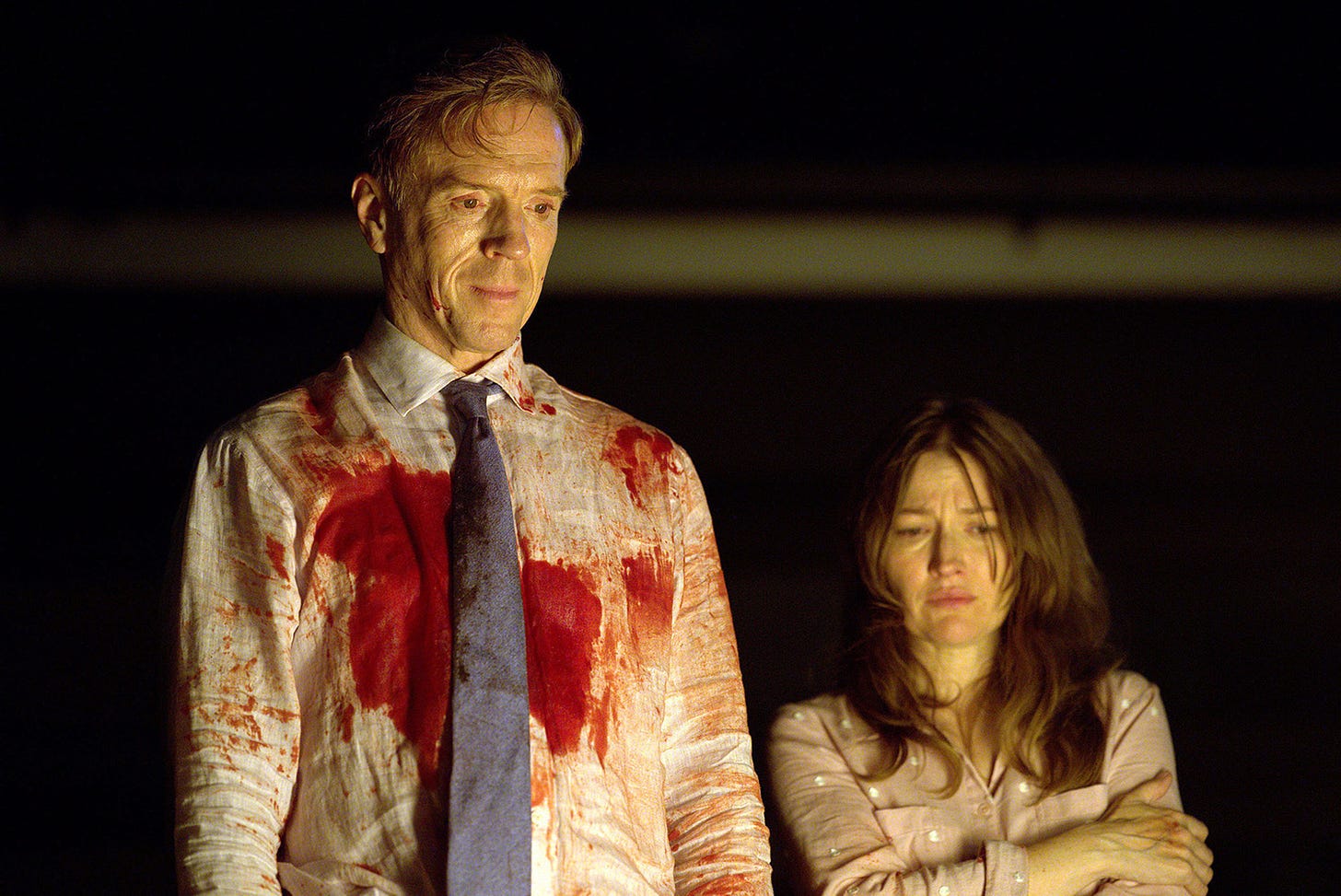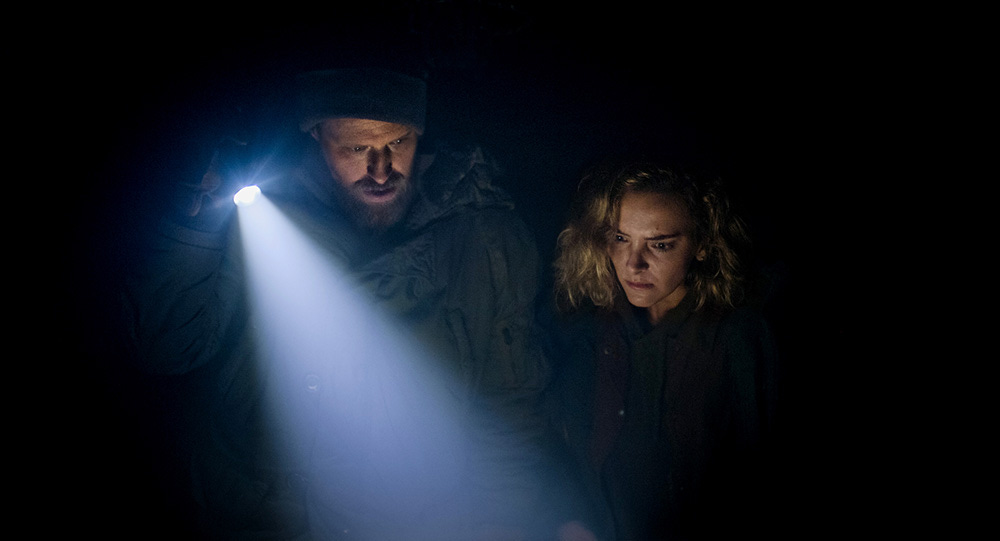The music push is in full force. My hope is to burn through some of these albums before the movie screeners start rolling in for FYC season.
I’ve finally worked my way through my original playlist that spanned through June 19th releases and have added titles of interest that released from then through September. So, we’re back up to almost two thousand more songs.
The “Year in Music” mix shortlist is up to 85 songs thus far with a preliminary rating on each to help organize things and whittle down later on. Elbow’s “Balu” is my favorite right now.
Albums in the docket I’m excited to hear: Alcest’s Les Chants de l’Aurore, James Blake & Lil Yachty’s Bad Cameo, Lupe Fiasco’s Samurai, Washed Out’s Notes from a Quiet Life, Clairo’s Charm, Los Campesinos!’s All Hell, Cults’ To the Ghosts, Foster the People’s Paradise State of Mind, Kishi Bashi’s Kantos, London Grammar’s The Greatest Love, and Maximo Park’s Stream of Life.
And now I need to add today’s new releases to the queue.
What I Watched:
DAAAAAALÍ!
(limited release)
Writer/director Quentin Dupieux makes the visual joke himself at the very end of his latest film DAAAAAALÍ! via Jonathan Cohen applauding himself (as Salvador Dalí) only to have Edouard Baer replace him, while holding a frame of Cohen’s face, to applaud himself (as Salvador Dalí) instead. The gag is pretty much the movie in a nutshell: a figure holding up a depiction of himself within a scene that infinitely repeats itself within itself. Only Dupieux has replaced that depiction with a mirror—a carnival mirror, more precisely—that warps the image ever so slightly to ensure we haven’t the foggiest clue of what’s coming next … or, perhaps, again.
It’s the perfect sort of absurdly surreal take to render another Salvador Dalí film acceptable. As the character himself admits, there are already too many cinematic representations of him. So, why make another? The answer, quite simply, is because you can. The real question isn’t therefore for the maker, but the viewer. Why watch another? In many cases I’d argue I wouldn’t, but Dupieux’s singular creativity promises that we won’t be disappointed if we decide to try anyway. Because he has the vision to present a biopic that rejects biography. Why supply details real fans already know when you can bring Dalí’s essence alive instead?
Thus, the six “As” in the title to represent six different actors (yes, Boris Gillot’s ten-second cameo counts) playing the titular role. Baer is arguably the main iteration, older yet not oldest. Cohen comes in second as the younger yet not youngest variation. Pio Marmaï pops up now and then as their junior. Gilles Lellouche arrives sporadically to split the difference. And Didier Flamand sits in his wheelchair, at once a figment of Dalí’s hallucinogenic mind and, perhaps, the “real” Dalí suffering from the addition of senility to his fits of genius to create an out-of-time and out-of-body experience presenting his entire life at once.
Our lead, however, is Judith Rochant (Anaïs Demoustier). A pharmacist-turned-journalist still cutting her teeth, she becomes obsessed with finishing a profile of Dalí that abruptly ended when he discovered he wan’t being filmed. So, with the help of a producer (Romain Duris’ Jérôme), she pivots from magazine article to documentary with the goal of giving her subject everything he wants to make him think the profile was his idea in the first place. Mishaps ensue. Confusion abounds. And the never-ending dream of a priest (Éric Naggar) loops and melts into reality to the point of no longer knowing if the entire thing is just a manifestation of Dalí’s ADHD-riddled superego.
The result is an entertaining journey into the artistic chaos of genius and the necessity of luck and coincidence to even begin hoping to herd the cats that are Dalí’s fractured visages of himself. You know what you’re getting right from the start too as Baer’s approach down the hotel hallway to Judith’s room becomes an interminably long marathon of which Dalí would need to be walking in place for it to make logical sense. But it’s not supposed to be logical. It’s supposed to be a film unraveling as if it were one of the artist’s own paintings. A loop of insane interactions consuming each other as though part of some multiversal implosion at the end of Dalí’s life. One final, jumbled slideshow flashing before his eyes.
- 7/10

HOLD YOUR BREATH
(streaming on Hulu)
Margaret (Sarah Paulson) lost herself when young Ada died. The nightmares were too much to bear and the lack of sleep led to a blurring of reality. If not for the sleeping pills prescribed by her doctor, who knows what she might have done to her other two daughters? But things are calm now. Margaret understands the importance of staying clear-headed and strong for Rose (Amiah Miller) and Ollie’s (Alona Jane Robbins) protection. Between the dust storms, her husband’s absence for work, stories of homicidal drifters, and her own demons, those pills are the only thing keeping her together.
Karrie Crouse (who also wrote) and William Joines’ HOLD YOUR BREATH uses its 1930s Oklahoma panhandle setting to put this grieving and desperate mother’s back against the wall. Margaret has already lost one child to the oppressive elements inherent to her dust bowl circumstances. Her sister Esther (Annaleigh Ashford) is barely holding on down the road with a coughing son and unraveling means with which to combat the poor air quality. And the weekly knitting circle has nothing better to talk about than salacious rumors that prove as fear-inducing as the story of “The Grey Man” that Rose tells Ollie before bed.
What’s compelling about these mounting stresses, however, is that Margaret is up to the task. Whereas she was her family’s own worst enemy before, she’s now become its hero willing to do whatever is necessary. Sweeping every last dust particle out of the house each morning. Stuffing torn linens into the cracks in the bedroom walls. Patrolling the perimeter with a shotgun to ensure no one is lurking about. Margaret is arguably too alert considering how tough she is with Esther and others for refusing to go that extra mile themselves. Rose and Ollie are wanting for nothing until a stranger wanders onto their property. A kindly preacher (Ebon Moss-Bachrach’s Wallace) as likely to be their savior as he is their demise.
It’s one thing to trust yourself to not be the problem when everything is in order, but it’s another to do so when the world is crashing down. The second Margaret believes this man to be a threat, all her hard work evaporates. How can she sleep if her kids are in danger? How can she be ready to protect them if she doesn’t get any sleep? And who’s to say sleep would help if this figure is only but a vessel for the very entity Margaret assured Ollie wasn’t real? Because if “The Grey Man” does exist amongst the dust, he’ll float through the air until a new host breathes him in. There’s no telling who might be next.
HOLD YOUR BREATH proves a beautifully shot and slow yet purposeful psychological thriller with a precisely measured shift from clarity to confusion. Every little detail becomes a knock at the door of Margaret’s mind. Death. Murder. Coughs. Bloody noses. Wallace (Moss-Bachrach expertly toes the line between good and evil as well as real and imagined). Crouse’s script is cause and effect at a microscopic level within Margaret’s body. This is a mother trying to hold onto that which brought her back from the precipice of oblivion only to find her grip slipping with each new potential danger until she becomes the greatest hazard of them all.
Paulson is great in the role—simultaneously fearsome and empathetic because we understand where she’s coming from. Her actions are justified (to a point), but the era refuses to provide the means with which to adequately assist her in pursuing justice. Margaret knows what happens if she fails. Ada is proof of that. She also knows what happens if she loses herself again thanks to Esther’s mirror. So, when she does (because it’s always a matter of when rather than if), there’s no turning back. It doesn’t matter if her truth proves to be a delusion. It can’t be one for her. She must believe the nightmare because there can be no saving face. Once you give “The Grey Man” form, it’s already too late.
- 7/10
THE RADLEYS
(limited release & VOD)
It’s a vampire film, but also a junkie film. That’s what happens when you decide to bring the supernatural into reality in ways that make it less so. Because while a full-blown vampire can wield mind control and super strength during an infinite life span in Euros Lyn’s THE RADLEYS (adapted by Talitha Stevenson from Matt Haig’s book), they’re pretty much just drug addicts acting on adrenaline and craving. The allure of this lifestyle is thus dulled (after the initial rush of discovery) to make sense of why Helen (Kelly Macdonald) and Peter Radley (Damian Lewis) chose to abstain. Unfortunately, sobriety is a constant struggle.
The world building is therefore compelling—especially once the Radleys’ children (Bo Bragason’s Clara and Harry Baxendale’s Rowan) discover what they are. It’s understandable to want to choose abstinence after surviving the reckless lifestyle of a vampire for decades, but these teens have no historical basis with which to comply. You can’t suddenly expect them to feel this unlimited sense of power and agree to simply give it away. They must come to that decision themselves, even if it means leaving a few bodies in their wake. Because, just like with drug addiction, you often can’t come out the other side without first hitting rock bottom.
That’s where Peter’s twin brother Will (also Lewis) comes in. He’s the complete opposite of the mild-mannered doctor quietly living a suburban life in plain sight. Will loves being a vampire. He loves treating humans like expendable blood bags to be left draining on the side of the road. He drives his RV across Europe without a care in the world, messing with people’s minds and lives depending on what suits his current desires. Peter and Helen could never tell their kids about him because his carefree lack of morality would look like fun and destroy everything they’ve built. But they need him now. They need the powers they refuse to use and can only hope Clara and Rowan see past his façade of cool.
You’d therefore assume THE RADLEYS will be a simple good vs. evil choice between abstinence and addiction. In some respects, it is. Except it’s also about unrequited love (or the perception of it). And that’s where things start to fall apart considering we’ve barely been able to wrap our heads around the mythology at play (let alone the addition of a former cop in Shaun Parkes who’s kind of on their trail despite not really being on it considering his motives are personal in nature) before the focus shifts to Rowan’s loner trying to juggle his feelings for Evan (Jay Lycurgo) and his craving for blood. Yes, these threads go hand-in-hand, but not quite as smoothly as you’d hope.
What I mean is that Rowan’s journey is precisely what his parents went through years prior. While that mirror is a great way into the mythology, however, we don’t start there. First, we follow Clara as though she’s the main character going through her own self-discovery from the perspective of toxic masculinity and rape (another parallel to their parents’ as yet mysterious origins that’s brushed aside way too cavalierly). We therefore invest in her only to have her disappear for the second half of the film when Rowan takes over. Lyn and Stevenson understand the need for both as connective tissue to Helen, Peter, and Will, but they can’t quite get everything to mesh so it doesn’t all feel bloated, slow, and meandering.
Once you come out the other side and look back, though, it will make sense. I found myself more interested in the idea of vampirism as drug addiction than any of the human drama (due to the latter coming in fits and spurts when the plot demands it), but you can’t have one without the other. I guess I just wish it could have all been woven together better so it didn’t feel like I was watching two films with very specific starts and ends. Let Clara and Rowan’s discoveries unravel in tandem rather than succession so we don’t feel as though both are secondary to Mom and Dad despite Rowan ultimately taking control.
It plays like a much longer enterprise awkwardly cut down in a way that retains too much information without allowing for the payoffs necessary to care about each narrative thread. Characters come and go to be rendered as pawns to a plot that doesn’t truly begin until about halfway through and it proves difficult to invest when we don’t know how long their involvement will actually last. The beats are there—they just keep getting hit in precise order without the nuance necessary for organic emotional attachment. That clinical nature ensures it works, but only superficially so in the moment. I’ll probably never think about any of it again.
- 5/10
THINGS WILL BE DIFFERENT
(limited release & VOD)
It’s ultimately about regret and guilt. That’s why Joseph (Adam David Thompson) got in touch with his estranged sister Sidney (Riley Dandy) in the first place. Something went down years before wherein she got caught and he ran away. He feels he owes her as a result … even if she doesn’t. So, because she’s drowning in debt and he’s barely making ends meet owning a bar, they band together for a heist that will make all their troubles disappear. The plan is even foolproof enough to get Sidney to agree to leave her daughter Stephanie for the two weeks necessary to evade the authorities. All they must do is travel through time.
I say that matter-of-factly because writer/director Michael Felker presents it that way in his feature debut THINGS WILL BE DIFFERENT. That’s not to say it isn’t still a wild concept to this brother and sister duo, though. It’s simply not an impossibility and therefore worth the risk. Why? We don’t know. We don’t need to know. All that’s asked of us is to believe Joseph and Sidney decided to take the leap of faith that the regular in his bar who presented this opportunity is trustworthy. Just go to an abandoned farm, dial a couple grandfather clocks as though they were combination locks, enter a closet upstairs, and poof!
Unfortunately for them, however, the device working doesn’t necessarily mean the plan will. So, right when their allotted two-week exile expires, a board is suddenly found nailed across the door frame of their escape. Whatever power is at work is revealed to have “keepers” of a sort who weren’t expecting them as guests. But instead of getting rid of Joseph and Sidney for playing with things they didn’t understand, these voices inexplicably saved on a tape recorder to conduct real-time conversations with the siblings propose a quid pro quo. While they might be unwanted, they aren’t harming the system. They can therefore leave as long as they first kill another unwanted guest who is harming it.
The film intentionally leaves a lot of exposition out to ensure we focus solely on who these two characters are today. Joseph is stuck in the past trying to make good on a demand his sister never made of him. Sidney is stuck in the present wanting nothing more than to return home and be with her daughter. So, this “job” places them in a dark headspace that leads him to alcohol so he can numb this new sense of guilt from keeping her away from her kid and her towards conspiracy theories in a bid to figure out what’s actually going on in the hopes answers might supply them an exit. And all the while they wait for their target … if said target even exists.
I don’t want to say too much since the most important bits arrive in the third act, but the title is relevant as words uttered and words with meaning in the context of time travel. Things were supposed to be different this time in that they neither should have been taken away and things can be different if they’re afforded the chance to do it all again. Will they, though? Anyone who’s ever watched a time travel film knows the science fiction construct generally comes at a price. Maybe one alteration makes things worse. Maybe every alteration changes nothing. Sometimes the pain of regret becomes a part of who we are until the real damage is proven to be our inability to stop trying to fix what can’t be repaired.
Felker does some compelling things with the idea that this farmhouse is “between time.” The notion that Joseph and Sidney can talk to unknown entities on either side of their purgatorial stillness and that those people can instantly change things by ostensibly moving through it is pretty cool. And don’t assume that your ability to guess who their mysterious target is will ruin the ride since THINGS WILL BE DIFFERENT is less about escaping an environmental prison and more about surviving the prison of their minds. Why this person needs to die is irrelevant. How Joseph and Sidney logically end up here when the chicken and egg equation doesn’t quite add up is irrelevant too.
Heck, even the voices on the other end of that tape recorder are irrelevant considering they’re merely facilitators with no actual ability to change anything. They don’t recruit people they don’t know for fun, after all. They need something to happen and Joseph and Sidney are simply the people in a position to get it done. Felker has created a hermetically sealed puzzle box to force his characters into confronting the choices and mistakes they’ve made. And once they voluntarily travel inside, that seal guarantees they reckon with those actions because it isn’t the safe haven they were sold. No, it’s a hell wherein they become their own worst enemies until finally accepting that peace may only be found in oblivion.
- 8/10
Cinematic F-Bombs:
This week saw THE BIG PICTURE (1989), THE INTERNSHIP (2013), OUR FAMILY WEDDING (2010), and WHITE NOISE (2005) added to the archive (cinematicfbombs.com).
Noel Gugliemi dropping an f-bomb in OUR FAMILY WEDDING.
New Releases This Week:
(Review links where applicable)
Opening Buffalo-area theaters 10/4/24 -
THE COWBOY AND THE QUEEN at North Park Theatre (select times)
DEVARA: PART 1 at Regal Elmwood
JOKER: FOLIE À DEUX at Dipson Amherst, McKinley, Flix & Capitol; AMC Maple Ridge & Market Arcade; Regal Elmwood, Transit, Galleria & Quaker
MONSTER SUMMER at Dipson Capitol; AMC Market Arcade; Regal Elmwood, Transit, Galleria & Quaker
THE OUTRUN at Regal Elmwood, Transit & Quaker
SLEEP at North Park Theatre (select times)
“Yu understands that a potentially mentally unstable Soo-jin will match the violence of a potentially possessed Hyun-su. That's the true horror: that humanity can be just as terrifying as any malevolent spirit.” – Full thoughts at HHYS.
SWAG at Regal Elmwood & Galleria
WHITE BIRD at Dipson McKinley; Regal Transit & Quaker
Streaming from 10/4/24 -
CTRL – Netflix on 10/4
THE DIARY – Prime on 10/4
DÍDI – Peacock on 10/4
IT’S WHAT’S INSIDE – Netflix on 10/4
THE PLATFORM 2 – Netflix on 10/4
THE MENENDEZ BROTHERS – Netflix on 10/7
BAD BOYS: RIDE OR DIE – Netflix on 10/8
CADDO LAKE – Max on 10/10
GIRL HAUNTS BOY – Netflix on 10/10
Now on VOD/Digital HD -
THE 4:30 MOVIE (10/1)
“Kudos to Smith for trying something different, but it's just too insipid to truly stand apart as a unique coming-of-age tale or a canonical Kevin Smith production.” – Full thoughts at HHYS.
DEADPOOL & WOLVERINE (10/1)
MADE IN ENGLAND: THE FILMS OF POWELL AND PRESSBURGER (10/1)
MY PENGUIN FRIEND (10/1)
SEBASTIAN (10/1)
SEEKING MAVIS BEACON (10/1)
“That complexity is what drives this detective story away from the search for Renée and towards an introspective look at the changing landscape of representation, deep fakes, and truth.” – Full thoughts at HHYS.
SPEAK NO EVIL (10/1)
STRANGE DARLING (10/1)
“It's not that Mollner is manipulating his characters to hide the truth. He's manipulating our preconceptions to heighten it.” – Full thoughts at HHYS.
THE WASP (10/1)
ARTHUR’S WHISKY (10/4)
KILLER’S GAME (10/4)
OPERATION BLOODHUNT (10/4)
THE PROBLEM WITH PEOPLE (10/4)
THE RADLEYS (10/4)
Thoughts are above.
RED ROOMS (10/4)
“It's a stunning tightrope walk that expertly weaves together a taut script, sensory overload (via very intentional and effective cinematography and score), and an enigmatic performance from Gariépy.” – Full thoughts at HHYS.
TAKE COVER (10/4)
THINGS WILL BE DIFFERENT (10/4)
Thoughts are above.







